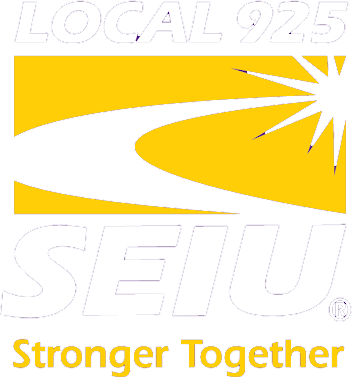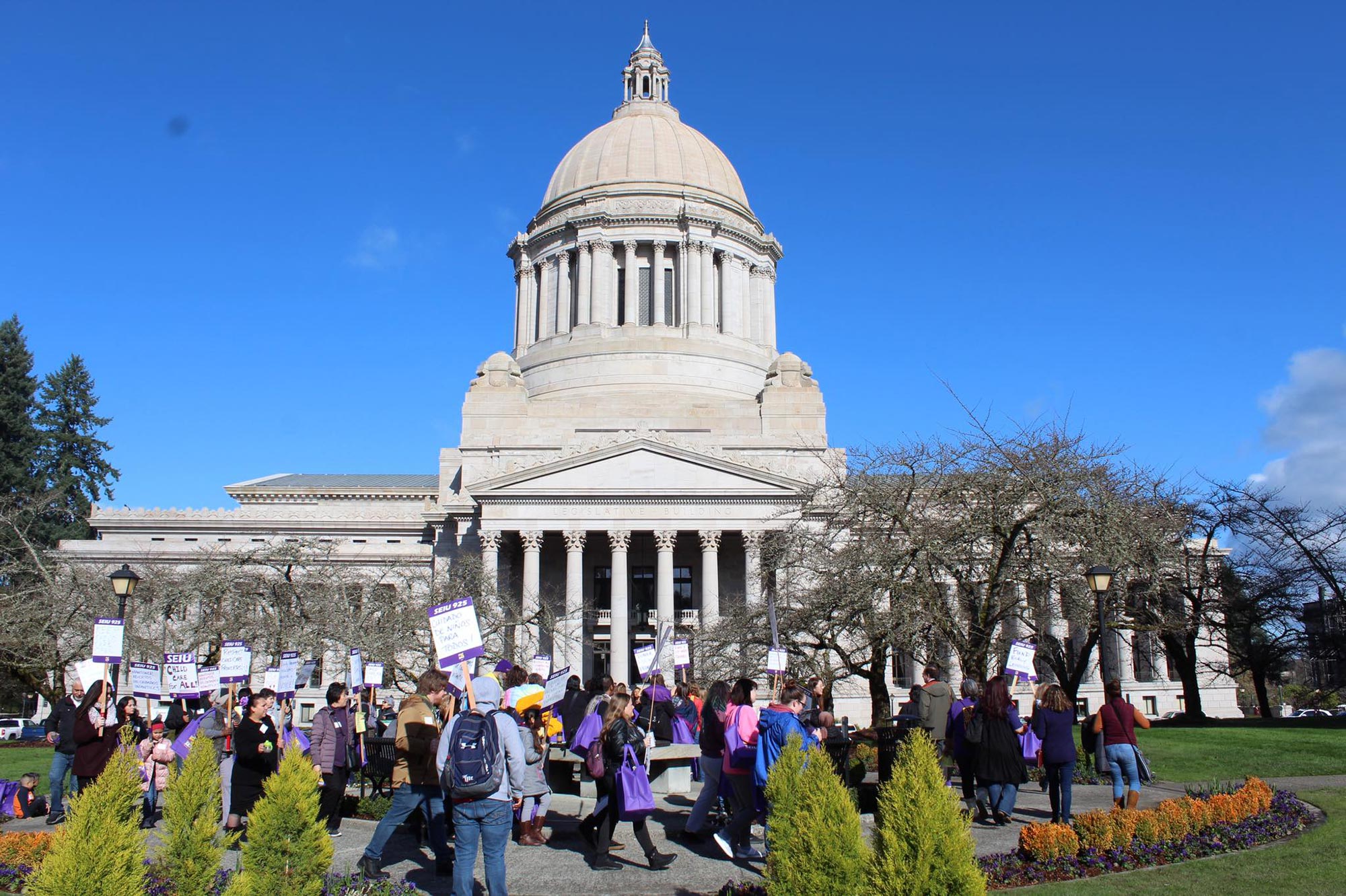Our tax code is upside-down and backwards. Families who earn the least pay the most, while the wealthiest pay a fraction of their fair share. It doesn’t have to be this way. The Legislature can balance our tax code, raise revenue, and refuse to cut programs that support families in crisis. These resources would allow us to invest in the public health and child care resources we need to restore our economy after the coronavirus. Budget gimmicks and short-term solutions won’t keep the economic heart of Washington beating in the short or the long term. Real reform is necessary if we are to grow our way out of this economic crisis without slashing higher education, workforce development, public safety, and the social safety net.
Fix the child care crisis
The pandemic has made clear the role of child care in a functioning economy. Pre-pandemic, Washington’s child care system was already broken, with 63% of the state in a care desert; today, the inequities have only been increased. Child care workers have been classified as essential workers, but are paid less than dog walkers and pet groomers, and most have no access to health insurance. The state must make bold, audacious investments by:
- Fully covering the cost of quality: Washington can no longer expect child care providers to accept subsidy kids when it doesn’t pay for the cost of care. Raise WCCC reimbursement rates to the market rate.
- Paying providers a monthly rate for subsidy, structured like the private market.
- Expanding eligibility for middle class families: For many families, licensed, quality care is unaffordable, costing more than $1,000 a month in many states.
- Eliminating the cap on WCCC participation
- Ensuring access health care by fully funding subsidies for Cascade Care
- Incentivizing specialized and non-standard hours of care: including subsidy enhancements for trauma informed care, dual language skills, and non-standard hours to serve families, including essential workers who often do shift work, can access care.
Support workers and students in our public schools
When schools were closed last March in response to COVID-19, workers in our public schools didn’t stop working. Many stepped up into flexible approaches to their jobs, with paraeducators supporting students in remote learning, and food service and transportation ensuring that kids were fed at home and had the materials and technology for online learning. Washington must support our schools through:
- Maintain and expand staffing to meet the needs of students in remote, hybrid, or in-person learning models. Students need individual attention to meet their learning needs, and school buildings need work to be ready to welcome students back when it is safe.
- Fund essential protections for the health and safety of students, staff, and our communities, including nurses, custodians, adequate PPE, cleaning, disinfecting, HVAC, water, and physical space.
Pass the Worker Protection Act
Washington has strong anti-discrimination, health and safety, and workplace protection laws, but they only work with an equally strong enforcement system. Unfortunately, understaffed state agencies do not have the capacity to keep up with violations. This gap is most keenly felt by essential workers in front-line industries, like farm labor, food processing, and grocery who are more likely to be women and workers of color. By empowering workers to enforce their rights on their own, without having to wait for government agencies that are stretched too thin, the Legislature will be better securing worker safety, fair pay, and discrimination-free workplaces.
COVID-19 Response
Our pandemic response is far from over—everyone and every system including essential workers, public health, education, and tenants falling behind on rent all need meaningful support in order to continue fighting this disease and rebuilding a more equitable future.
Climate Action
We must take urgent action to address climate change before the worst effects are unavoidable—this is a racial and economic justice imperative. Transportation is the leading source of carbon pollution in our state, and we can reduce by enacting low-carbon fuel standards like CA, OR, and BC, as well as implementing a cap and trade system to price pollution and return those investments to our community while reducing to zero net emissions.
Police Accountability
Police violence and lack of accountability has devastated families and our communities and must stop. The Washington Coalition for Police Accountability centers impacted families and is leading work to reform use of deadly force and tactics to stop this violence, ensure independent criminal investigations so police do not investigate police, and reform professional licensing so there is community-led oversight of police who violate community rights and safety.
Want to make sure these ambitious goals are passed? Sign up to get involved here!

